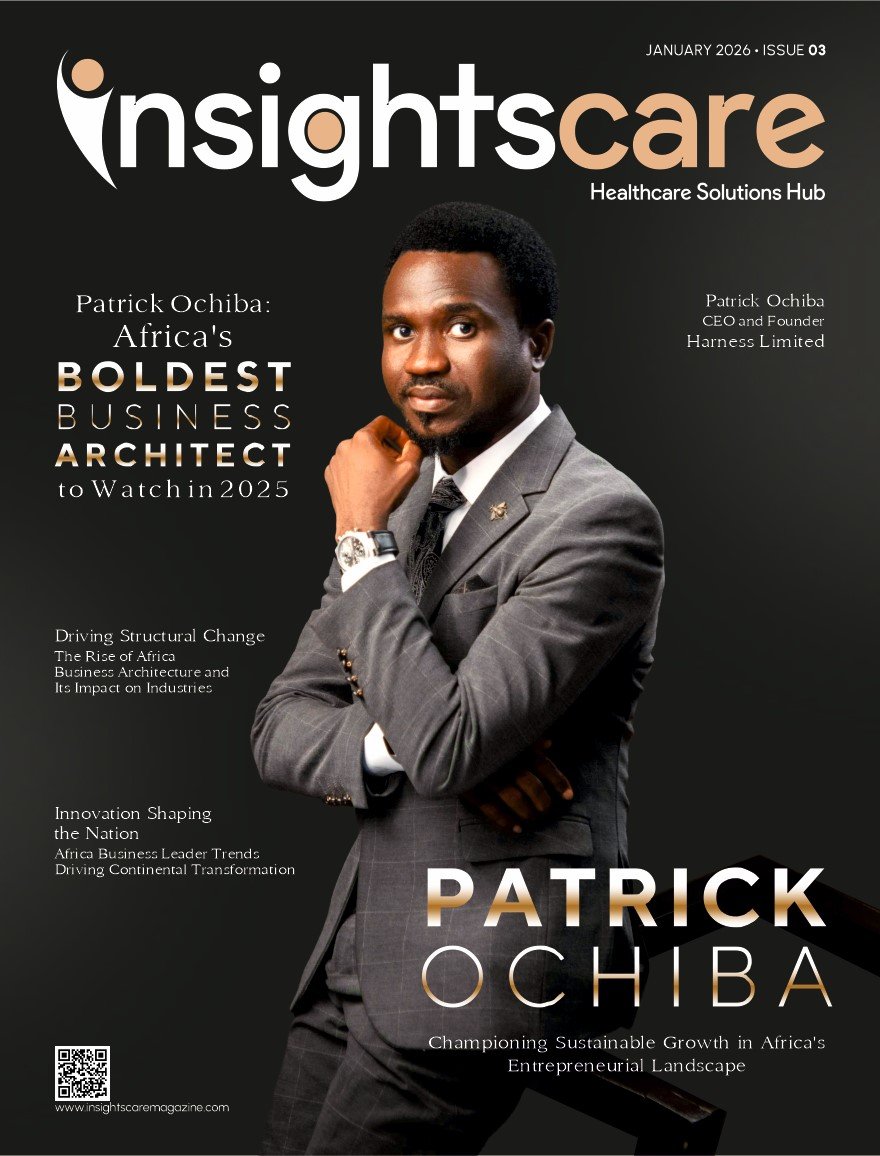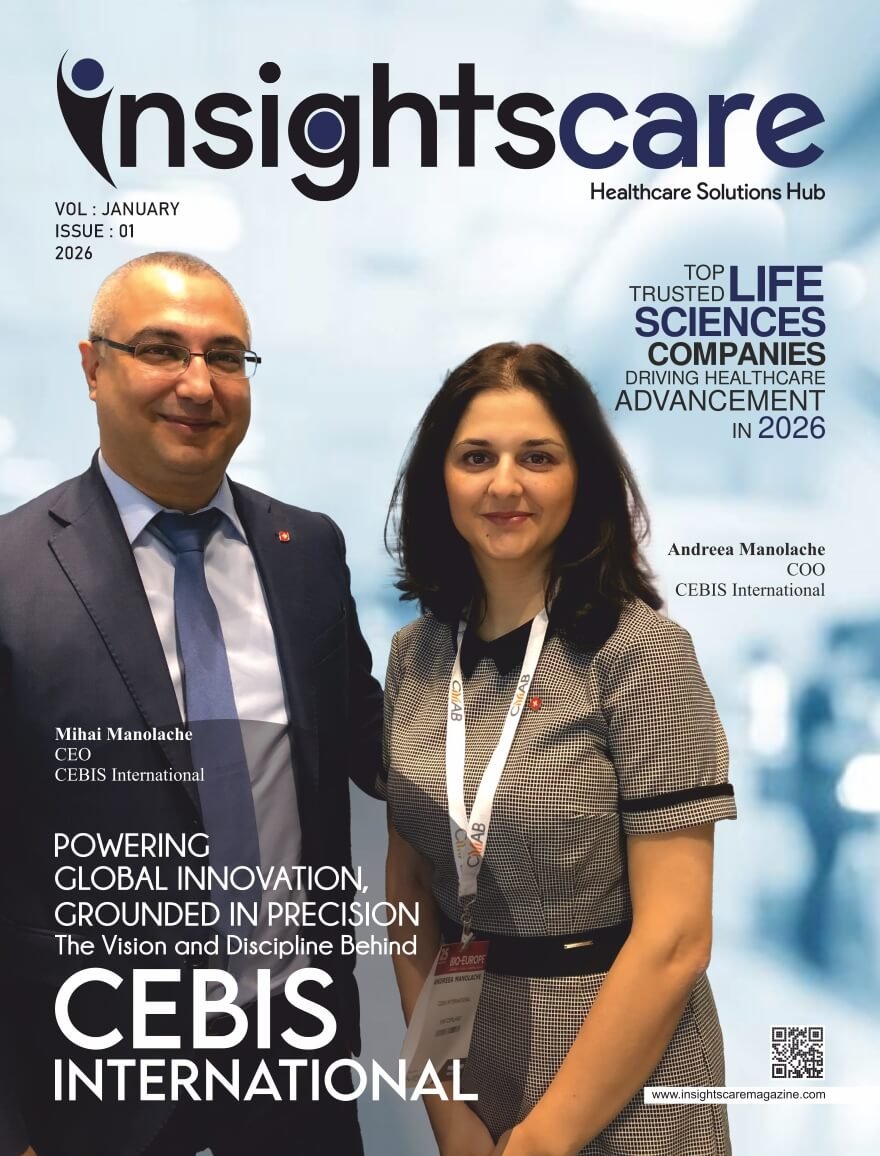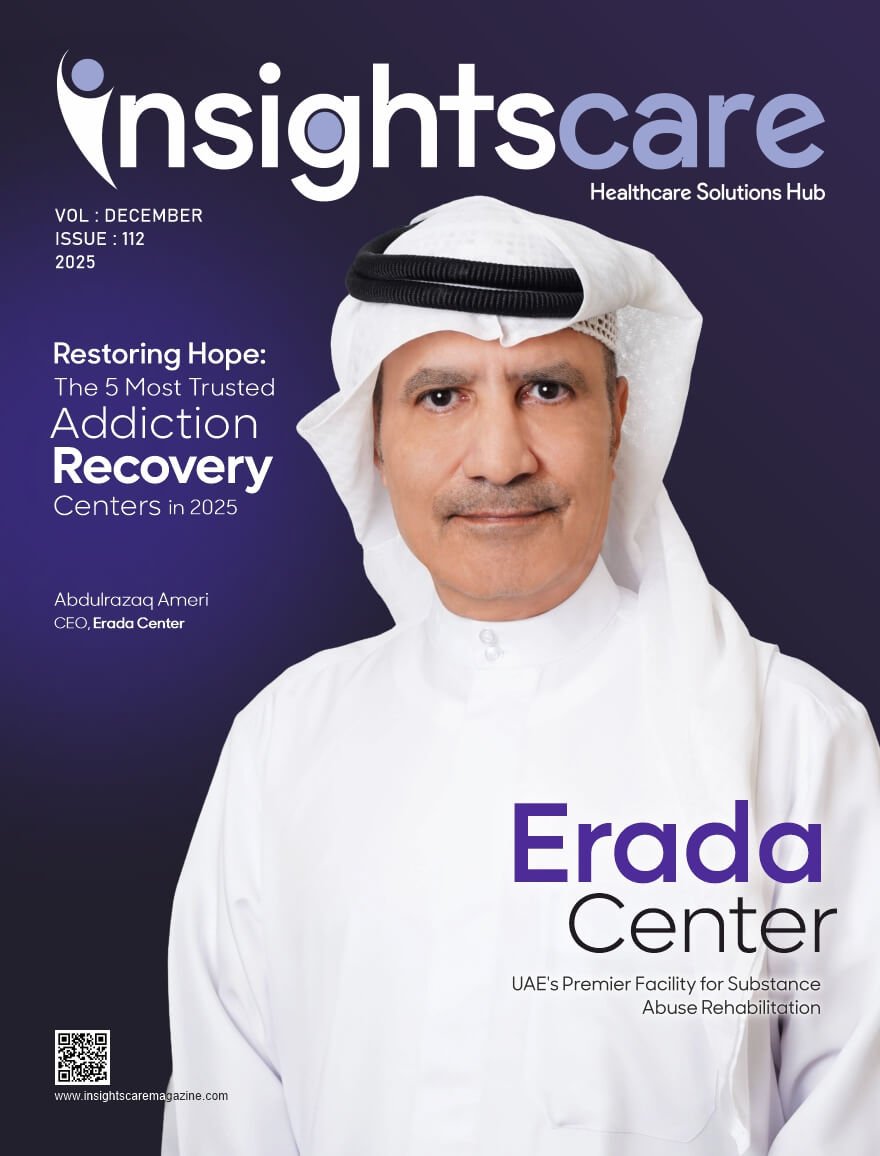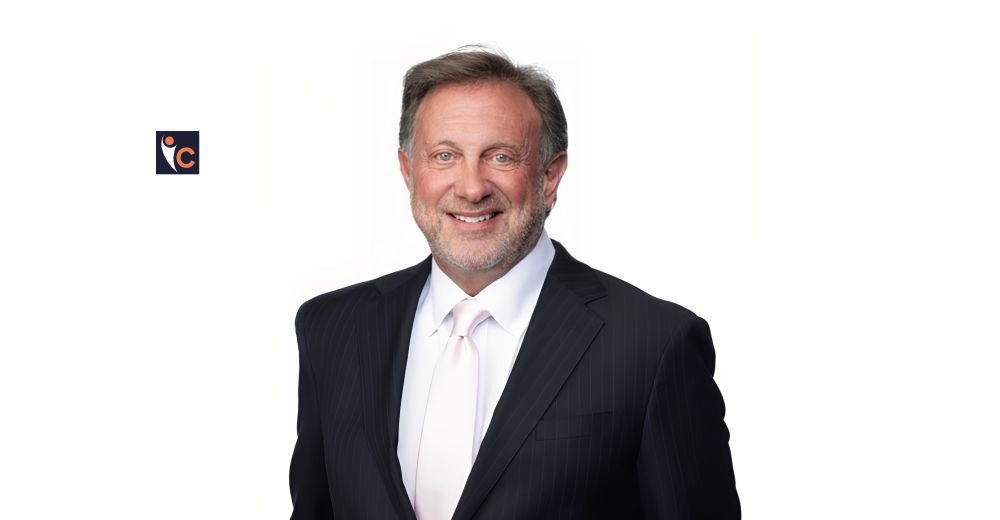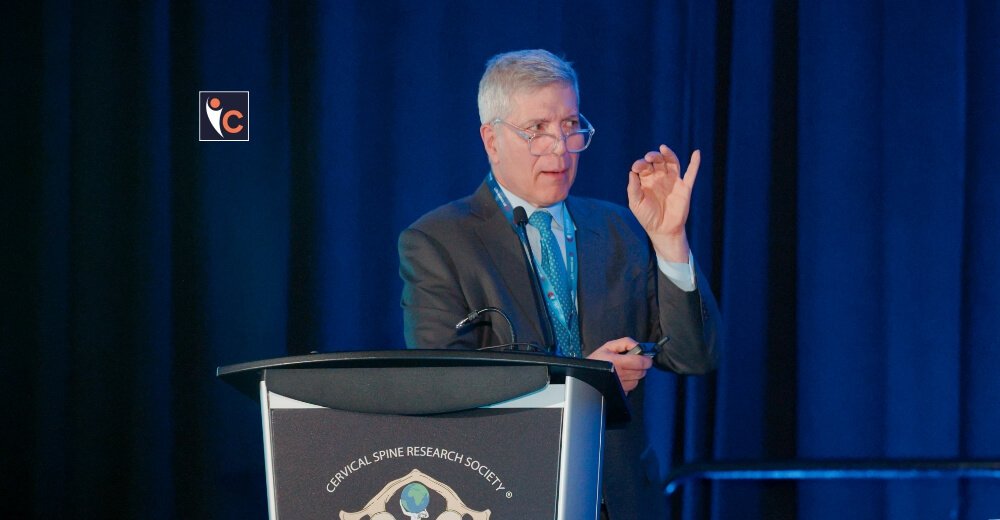Where the past met method, the future now meets intelligence—clinical research is entering a new era where science and smart technology come together. As treatments become more advanced and patient groups more varied, contract research organizations (CROs) play a more important role than ever. They don’t just handle the day-to-day work of clinical trials; they also act as key partners in developing new medicines and therapeutic devices. In this complex field, a few leaders are pushing the limits of what CROs can do, focusing on innovation, expertise, and patient outcomes. One of those leaders is Gary Zammit, whose career brings together strong scientific knowledge, a drive to build something new, and a clear focus on people.
Gary Zammit is the President and Chief Executive Officer of Clinilabs, a globally recognized CRO that specializes exclusively in the development of treatments for central nervous system (CNS) disorders. His path into clinical research was born not out of convenience, but of necessity and deep conviction. Having served as a principal investigator at a hospital-based clinic, Gary Zammit experienced firsthand the pitfalls of an industry that often lacked therapeutic depth. He recounts, “Before I started the company, I worked as a principal investigator, often working with CROs to conduct CNS trials in my outpatient clinic. I felt that many CROs at that time lacked the therapeutic area expertise needed to understand the science and run clinical trials efficiently.”
It was during these early years that the idea of a dedicated CNS-focused CRO took shape. The road to entrepreneurship, however, was not without personal sacrifice. “After one particularly disappointing trial experience, Gary Zammit decided to resign from a secure job while his wife was six months pregnant with their first child, taking a leap that would later reshape CNS research. Gary Zammit recalls, “the idea of leaving my job and starting the business did not go over too well at home at first, but my wife eventually encouraged my decision and became my greatest cheerleader.” What began as a bold personal mission has since evolved into a globally respected organization known for both its scientific acumen and patient-centered philosophy.
Let’s take a closer look at how Gary Zammit is leading Clinilabs toward new breakthroughs in clinical research!
Service-Driven Leadership Built on Science and Culture
Gary Zammit views leadership in the CRO space as fundamentally service-driven. “CROs are service organizations. It is all about the people, processes, and systems they apply in the course of their work,” he explains. This trinity of people, process, and technology forms the cornerstone of Clinilabs’ operational excellence. He believes that the most successful CROs combine top-tier talent with world-class processes and cutting-edge digital tools.
Beyond operational efficiency, leadership also means instilling purpose across every layer of the organization. For Clinilabs, this purpose is embodied in its internal credo: the “Culture of Quality.” Gary Zammit elaborates, “Leadership must keep everyone focused on the company’s mission, vision, and culture. At Clinilabs, we coined the phrase ‘Culture of Quality’ to define us, and our core values are represented in the acronym ASPIRE, which stands for Accountability, Science, Partnership, Integrity, Responsibility, and Excellence. I’m adamant that we don’t simply post our core values on our website – we live by them.”
Why CNS Specialization Matters
In an industry populated with large, generalist CROs, Clinilabs’ exclusive focus on CNS gives it a formidable competitive edge. “CNS trials are complex, and they fail more often than trials in other therapeutic areas, so expertise is at the heart of success,” Gary Zammit emphasizes. Indeed, CNS disorders such as depression, schizophrenia, epilepsy, Alzheimer’s, and PTSD demand more than routine execution; they require a deep understanding of neurobiology, patient assessment, regulatory pathways, and statistical interpretation.
This singular focus enables Clinilabs to offer a truly comprehensive suite of services—spanning first-in-human studies, proof-of-concept trials, and pivotal phase 3 programs. From the design of clinical protocols to patient recruitment and site selection, every element is tailored to the unique demands of CNS research. “We are the only global CRO that is focused exclusively on the development of CNS therapeutics, both drugs and devices. As CNS experts, we know the patient populations, study designs, assessment tools, investigator sites, and regulatory strategies that sponsors need to achieve success,” he says.
Importantly, Clinilabs is structured to prioritize clients who may be sidelined by larger CROs. “As a mid-sized organization, we prioritize sponsors and projects that large CROs often cannot, and our senior management team is fully engaged in every project we do. Our value proposition is entirely different than that of large CROs.”
Technology as an Accelerator, Not a Distraction
Gary Zammit is keenly aware that technology, when properly harnessed, can enhance both the accuracy and speed of clinical trials. Clinilabs has made considerable investments in its digital infrastructure, from conventional systems like eCTMS, eTMF, and ePRO to proprietary innovations such as Clinical InSite 2.0. “We continuously strive to be at the forefront of technology advances, applying digital solutions to optimize workflows and improve data quality,” he notes.
Clinical InSite 2.0 is particularly noteworthy for its ability to interface with medical devices and wearables, facilitating real-time data transfer. This immediacy allows researchers to make informed decisions quickly and enhances the integrity of the data collected. “The systems we use are tailored to the specific needs of each protocol,” he says, emphasizing the customized nature of their technological integrations.
Clarity and Simplicity in Early Development
According to Gary Zammit , one of the greatest challenges in early-phase CNS trials is the temptation to over-engineer. He warns that excessive complexity can undermine study success. “In phase 1 and 2 trials, it is important to keep study designs simple, clearly define patient populations and outcomes, and limit non-core elements. Too much complexity can crush a study,” he explains.
Beyond design simplicity, there are additional nuances to consider in CNS research, such as placebo effects, diversity among patient cohorts, and the selection of psychometric instruments. “In CNS, we must carefully consider things like rater training, the use of centralized ratings, and placebo response mitigation. It is not acceptable to look back at the last successful development program and try to copy it. Every project is unique.”
Partnerships That Stand the Test of Time
In a sector where many engagements are project-based, Clinilabs has managed to build enduring partnerships. Gary Zammit attributes this success to consistent delivery and an unwavering focus on sponsor needs. “Long-term relationships are built on performance. If we do our jobs well, act in the best interests of the sponsor, and collaborate as partners, sponsors will return again and again,” he says.
This philosophy has led to extraordinary continuity. “Some of our large pharma sponsors have placed more than 50 projects with us over 25 years,” Gary Zammit reveals. In an industry where long-term loyalty is rare, these numbers speak to the deep trust Clinilabs has earned.
Recruiting Mission-Aligned Talent
Talent acquisition and retention are paramount in a field where human capital defines success. Gary Zammit has a nuanced view on what attracts and holds top-tier professionals. “These are important questions, so much so that I dedicated about half of my book, ‘Beyond the Science,’ to the development of high performing teams,” he shares.
For him, true A-players are not merely enticed only by compensation packages. “Interestingly, I’ve found that these people are not primarily driven by compensation. They are driven by the ability to achieve their personal best, to be part of a team that reaches lofty goals, and to work within an organization that both challenges and supports them more than any other.”
A Culture of Shared Accountability
Maintaining compliance and safeguarding patient well-being are non-negotiables. At Clinilabs, these priorities are deeply embedded into everyday practices. “The foundation is our SOPs. We are an SOP driven organization, and we rely on robust processes for quality control, quality assurance, and continuous quality improvement,” says Gary Zammit.
But he is quick to stress that quality is not the domain of a single department. “Quality is not something that is done only by the QA department – everyone is responsible for quality, and we hold each other accountable!” This culture of shared responsibility fosters an environment where excellence is a collective goal.
A Vision That Looks Forward and Outward
Gary Zammit vision for the future is one of optimism, propelled by technological advancement and deepened scientific understanding. “I believe we are on the verge of significant breakthroughs in neurotherapeutics; ones that will result in remarkable innovations in the way patients are treated,” he states.
He points to current research into psychedelics for PTSD and depression, disease-modifying agents for Alzheimer’s, and even vaccines for substance use disorders. “We are now looking at disease modifying treatments for cognitive disorders, including Alzheimer’s disease, and we’re even working on vaccines for substance use disorders and other CNS conditions.” This is coupled with the emergence of AI-based diagnostics, brain-computer interfaces, and mobile applications that are transforming patient care.
His forecast is ambitious but grounded: “We will accomplish more in the next 10 years than we have in the past 50.”
Guidance for Tomorrow’s Trailblazers
To those determined to lead the next generation of clinical research, Gary Zammit offers counsel forged through personal experience. “My advice is to identify the goals you want to achieve and stay laser targeted on those goals. Be singularly focused. Every step you take should be in the direction of fulfilling your set goals. Don’t let anyone or anything deter you, and don’t be discouraged by setbacks because, if you’re like me, you will have many!”
Gary Zammit journey from a frustrated investigator to pioneering CEO illustrates what is possible when deep scientific knowledge, bold entrepreneurship, and heartfelt purpose converge. Under his guidance, Clinilabs has become more than just a CRO; it is a symbol of what focused specialization and values-driven leadership can accomplish in an ever-evolving healthcare sector.

